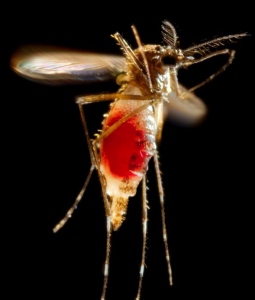By NewsDesk @infectiousdiseasenews
Thailand’s health ministry has reported an additional 1700 chikungunya cases in the past month or so, with the total cases now at 5728 year to date from 65 of the country’s 76 provinces.

No deaths have been reported.
Provinces with the highest incidence of the mosquitoborne infection include Chanthaburi, Uthai Thani, Lamphun and Trat.
Chikungunya virus (CHIKV) is transmitted by the bite of Aedes mosquitoes, particularly Aedes aegypti and Aedes albopictus. In humans bitten by an infected mosquito, the disease symptoms usually appear after an incubation period of three to seven days (range 1- 12 days).
CHIKV can cause acute, sub-acute, and chronic disease.
In acute disease, symptoms develop abruptly and include high fever, headache, myalgia and arthralgia (predominantly in limbs and large joints). The appearance of a maculopapular rash is also frequent. Severe forms of the disease are rare. Symptoms usually resolve in 7-10 days, although arthralgia and joint stiffness may persist intermittently for several months.
The disease shares some clinical signs with dengue and Zika, and can be misdiagnosed in areas where they are common. As there is no cure, treatment is focused on relieving the symptoms.
- Hepatitis D drug, Hepcludex, receives approval by the European Commission
- Dengue fever record set in Singapore
- Miami: Two additional West Nile virus cases reported
- COVID-19 treatment: NIH study aims to determine safety and efficacy of experimental monoclonal antibodies
- Malaria: Artemisinin resistant strain reported in Rwanda
- Dengue fever in the Florida Keys: 4 more local cases identified
- Bacterial vaginosis is triggered by BV-related bacteria present in some men’s penile microbiome: Study


Very good